30 August 2014
Obama’s red line on chemical weapon use has come to haunt him. Military intervention and the use of force, whether for humanitarian purposes, regime change or other reasons, invariably result in a proliferation of unintended consequences. This is the experience of Vietnam, Iraq, Afghanistan and, more recently, Libya.
The unfolding scenario in Syria, with over a 1,00,000 dead and several hundreds reportedly killed on August 21 through the use of chemical weapons, constitutes the biggest threat to international peace and security in recent months. Equally, the continuing paralysis and helplessness of the United Nations Security Council is the most comprehensive statement of its irrelevance.
The crisis has clearly assumed a sectarian character as the anti-Assad forces are mostly Sunni, carrying out vicious attacks against Alawite civilians as well as Alawite-dominated security forces. As the conflict drags on, Iran and Hezbollah, both ranged on Assad’s side, have got involved militarily on the ground while Russia has provided the Syrian government diplomatic cover at the UN.
Having witnessed the three easy steps for regime change in Libya — a Security Council resolution, the arming of rebels and NATO military action — the rebels in Syria expected the same sequence to unfold. They had been armed quite openly by Qatar, covertly by Saudi Arabia and clandestinely by others, including the West and the Gulf states. But with the Libyan experience behind it and weighed down by the strategic interests of Russia, the Security Council failed to oblige. Russia and China vetoed three draft resolutions in 2011-12. Unilateral military action by NATO or a “coalition of the willing” did not materialise either, simply because the West had lost its appetite for military action.
On one hand, there was the Syrian government’s influence in Lebanon and its potential to create instability in Turkey and Jordan. On the other, there was the expanding role of al-Qaeda-linked terrorist groups in the conflict. A view developed in the United States that there was no good side in the Syrian conflict. So it was argued that the US should simply let the conflict continue because two bad sides were killing each other.
Even while supporting the rebels diplomatically and collaborating with regional countries in training and arming the rebels, the Obama administration refused to supply heavy arms, mainly anti-tank and anti-aircraft weapons, that could have tipped the scale in favour of the rebels and neutralised the heavy weapons used by regime forces. The Obama administration also stopped others from supplying heavy weapons to the Syrian rebels. Such weapons, it was feared, would fall into the hands of extremist forces, which could have adverse long-term implications for Western interests in the region and beyond. Under pressure to do something in the face of large-scale civilian casualties, Obama drew a red line on the use of chemical weapons. This red line has now come to haunt him.
In response to its own determination that chemical weapons had been used by the Assad government and the red line crossed, Obama decided in June to arm the rebels. But the arms to be supplied are reported to be low-calibre weapons, of which there is no dearth in the region. This decision disappointed the Syrian rebels. By then, the rebels had also started to lose ground to the Syrian army. The change in the military situation on the ground made it difficult for the Syrian opposition to participate in the Geneva II conference.
News broke on August 21 that another chemical weapon attack had taken place, and on a massive scale. The Syrian opposition, in its letter to the Security Council, claimed 1,100 deaths. Qatar, in a separate letter, claimed 1,300 deaths. No prizes for guessing — the Syrian government was blamed.
In the course of the Syrian conflict, there have been several instances where rebels have stage-managed violent incidents. Invariably, such incidents get massive publicity in the Western and Arab media, painting the Syrian government in poor light. But none of the follow-up investigations on these incidents has been able to pinpoint, with any degree of certainty, that the government was responsible. It would not be surprising if the August 21 attack also turned out to be one such incident. The objective could well be to force the government to stop its offensive as well as to motivate and compel foreign governments to act against the Assad regime.
Having committed itself to a red line on the use of chemical weapons, the Obama administration finds itself in a quandary. If it takes no action, its credibility will be further undermined. The lack of a response will set a new benchmark with respect to the use of chemical weapons. But the administration has to factor in how much risk it is willing to take if its military action leads to some sort of retaliation by the Assad regime. Clearly, any military action that can credibly weaken Assad will invite a response by a regime with nothing to lose. And a limited military strike, of the kind Israel keeps undertaking inside Syria, will bring little advantage to a beleaguered opposition.
By postponing bilateral talks with Russia, scheduled on August 28, on preparations for Geneva II, the Obama administration is also putting pressure on it. President Obama’s preferred option at this stage would be to get a resolution from the Security Council under Chapter VII of the UN Charter, similar to the one vetoed by Russia and China in July 2012. With P-5 endorsement of the British draft circulated in New York on August 28 unlikely, the resolution, if formally submitted to the Security Council, will most likely be vetoed by the Russians and the Chinese. When this happens, Obama may order a limited, symbolic military strike against the military installations where chemical weapons are allegedly stored. In the absence of Security Council authorisation, the military action will be characterised as a unilateral coercive action.
Given the brutality of the violence on both sides and the sectarian divide, there is no easy way out of the quagmire.
The writer, a retired diplomat, was India’s permanent representative to the UN [email protected]
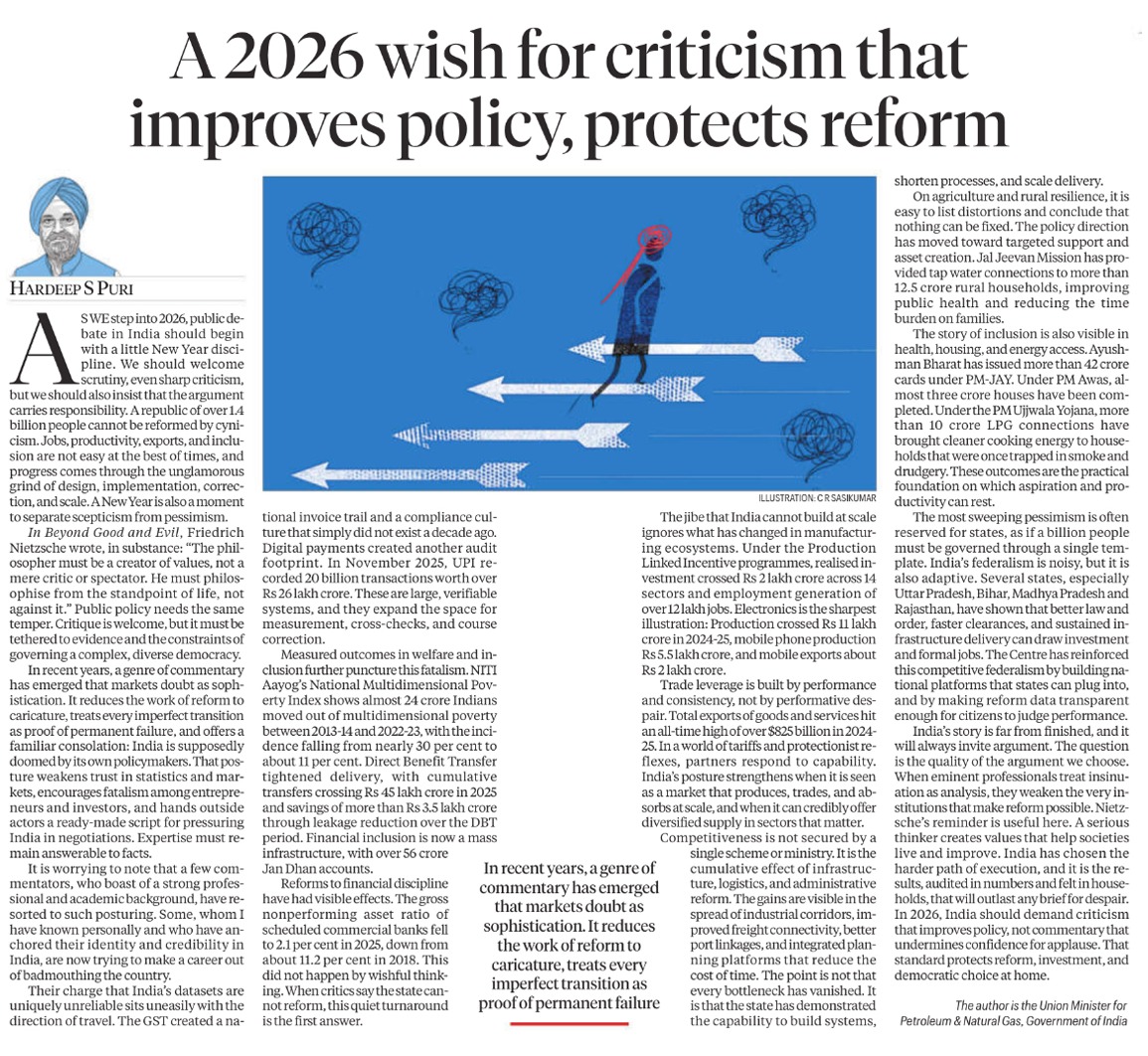
Our democracy benefits by criticism, but not by motivated fatalism by some “experts”, who seem more guided by their politics r...
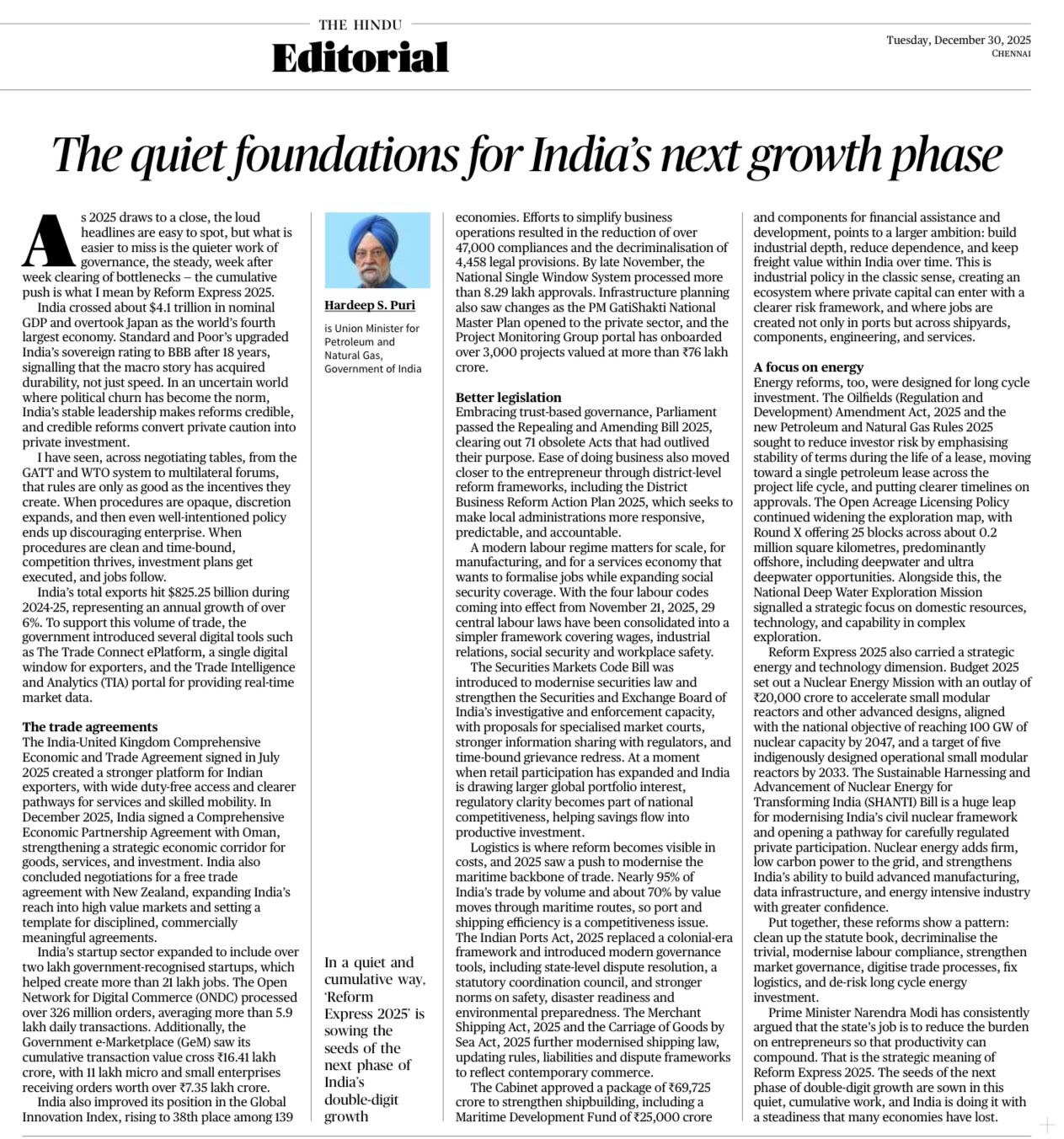
The quieter work of governance, the steady, week after week clearing of bottlenecks - this cumulative push is what I mean by Refo...

PM Sh Narendra Modi Ji has done the unthinkable in Bihar and it will change the grammar and lexicon of Indian politics for the ti...
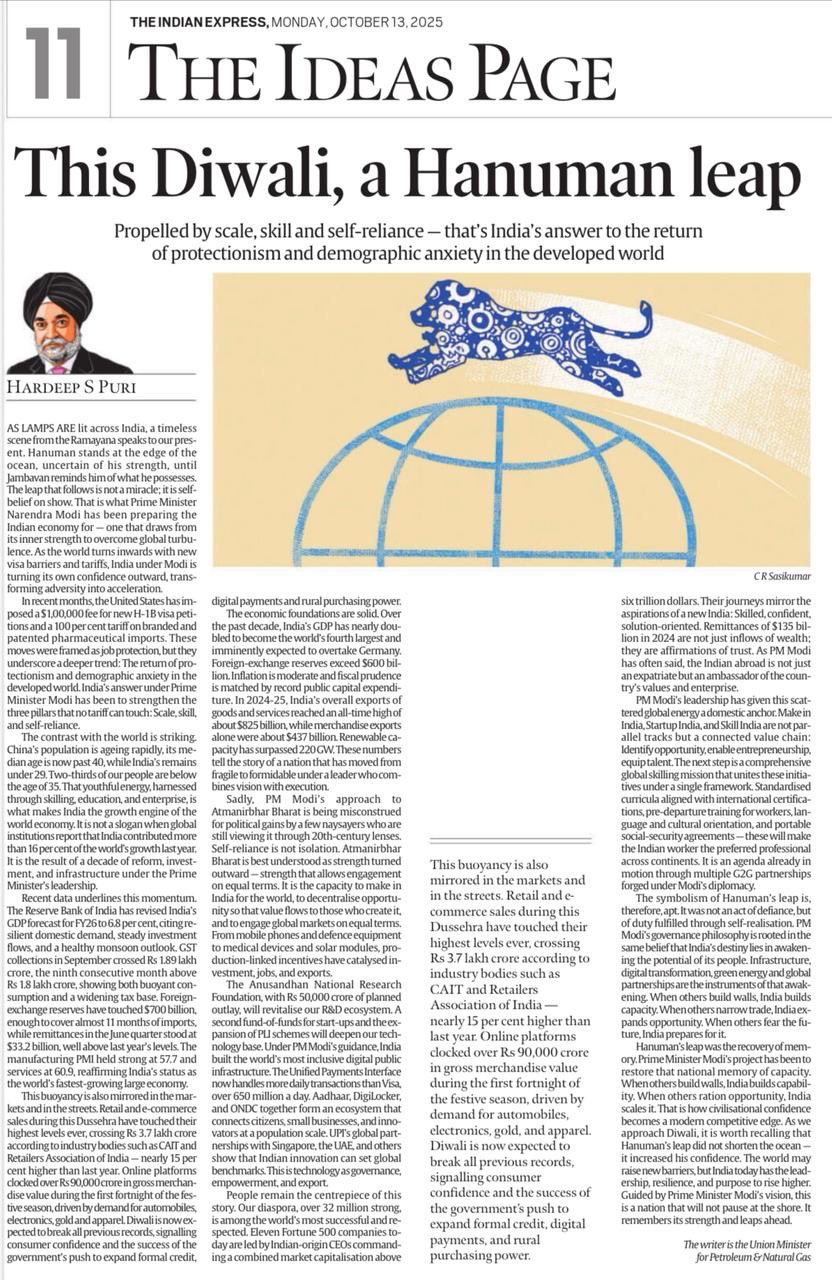
As the world passes through a period of geopolitical turmoil and uncertainty, India, under the visionary & decisive leadership of ...
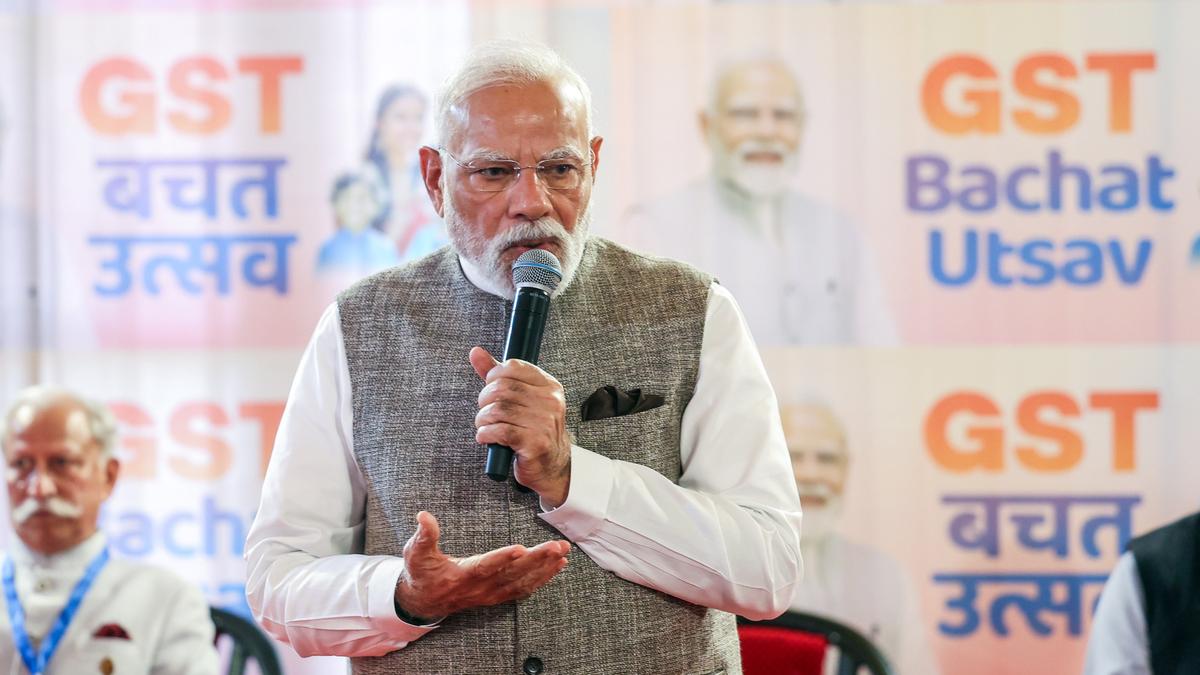
The Prime Minister’s professionalism and work ethic are what make the difference on the ground Praise has been showered on Pr...
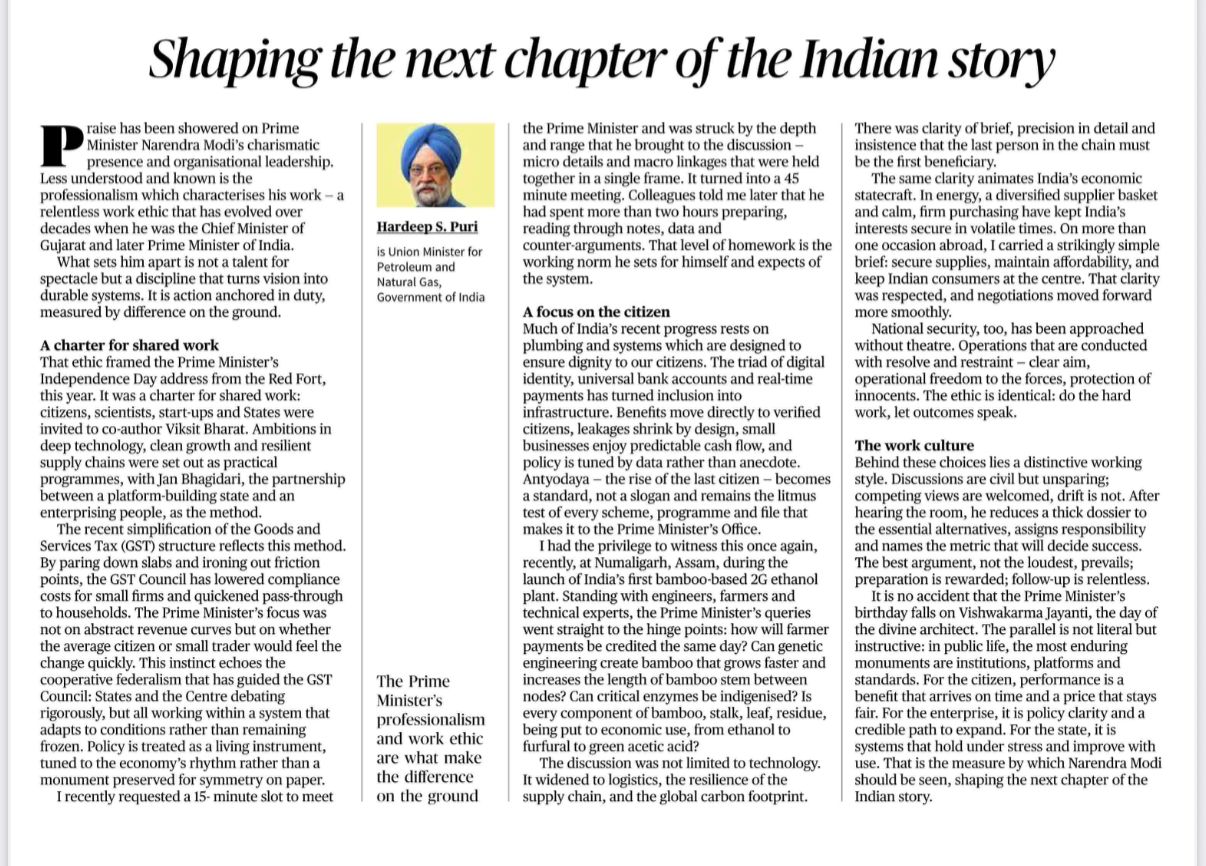
Shaping the next chapter of the Indian story!...
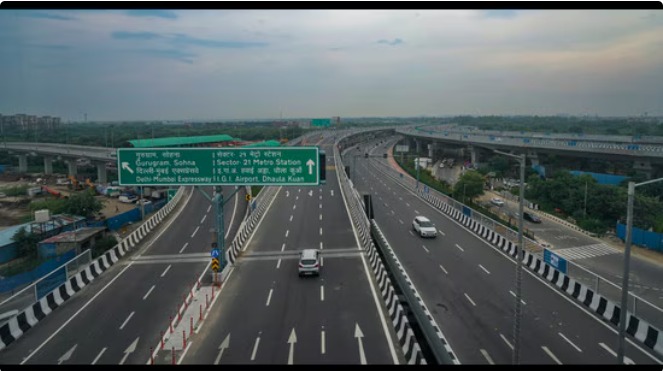
Indian cities are again on that path to being modern yet humane, ambitious yet inclusive, global in outlook yet rooted in our valu...

India’s fact-rich story of resilience, growth and energy security will silence the ‘global doubters’ who call it a ‘dead e...
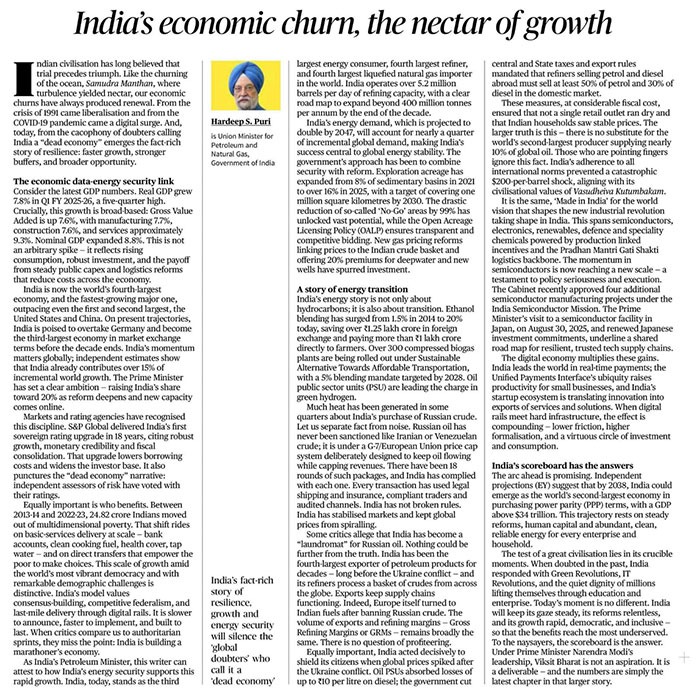
The test of a great civilisation lies in its crucible moments. When doubted in the past, India responded with Green Revolutions, I...